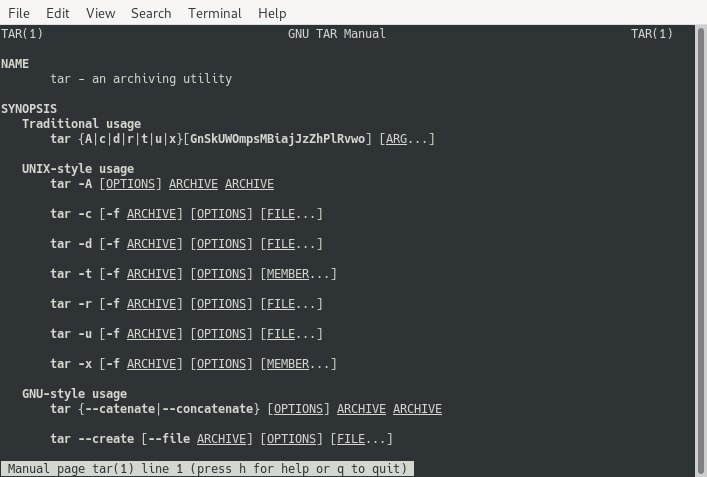
The destination tar reads the stream, opens files, writes data, closes files, and repeats, where those operations have very little latency. All of the synchronous operations happen on the destination server. It simply outputs a stream describing all of the file data and metadata without waiting for any response to any operation. tar on the source system does not expect any responses from the destination. The critical part is that while the TCP stream is bi-directional (the source sends data, the destination sends ACKs), the tar data is uni-directional. tar xf -) moves all of the latency to the remote system. Both rsync and scp will have a lot of synchronous operations when you're copying a directory to an empty remote directory. If a tool sends a command and waits for the reply, then bandwidth will be idle most of the time during that round-trip. In general, rsync is a very good tool (even when copying local folders, you shouldn't reject it for that.) However, it has the same problem as scp when the destination is empty. So far in this thread, there's only one comment that gets close to an accurate answer. Without the slash ( foo), the directory foo will be created at the destination, and its contents copied into it. Include a slash ( foo/) and only the contents of foo will be copied to the destination. Remove the -dry-run to actually copy things.Īlso note that for the source path a trailing slash is meaningfull. The syntax I usually recommend is: rsync -aPh -dry-run /path/to/source will simply display on the screen what rsync would copy.

Untar tar gz ssh how to#
Seriously, go spend a few hours learning how to use it. You've obviously never learned to use rsync, and you are missing out. It's bloody ubiquitous-included in every linux distribution, and even in MacOS. It isn't a “side-tool” (whatever that means). But rsync is hardly obscure, and I'm willing to bet that no one has spent the time to optimize scp -r because tools like rsync and sftp already exist. Extract Tar files from the command line (replace with the name of your tar. I'm sorry that you're put out by discovering that your clever work-around is, in fact, the hard way to do things. Extract (unzip) files using the File Manager in konsoleH. I usually use rsync to write files to a USB flash drive or SD card. tar.It's quite common to use rsync in place of cp, especially when you want to copy an entire directory tree. What command do I need to use to extract all the files in a. Unzip: cannot find zipfile directory in one of community_ or community_.zip, and cannot find community_.ZIP, period. How can I untar multiple tar files over ssh Ask Question Asked 12 years, 2 months ago Modified 11 years, 3 months ago Viewed 7k times 5 I am attempting to untar multiple tar files over ssh: ssh userhostname 'cat /dir/file.tgz' tar xvzf - The above only works on the first file match on the remote server.
Untar tar gz ssh archive#
Note: community_ may be a plain executable, not an archive In the latter case the central directory and zipfile comment will be found on the last disk(s) of this archive. Either this file is not a zipfile, or it constitutes one disk of a multi-part archive. tar.gz file to our hosting site, but when I ssh into my directory and try using unzip, it gives me this error: locations]$ unzip community_Įnd-of-central-directory signature not found.

tar.gz file from a client that contains about 800 mb of image files (when uncompressed.) Our hosting company's ftp is seriously slow, so extracting all the files locally and sending them up via ftp isn't practical.


 0 kommentar(er)
0 kommentar(er)
